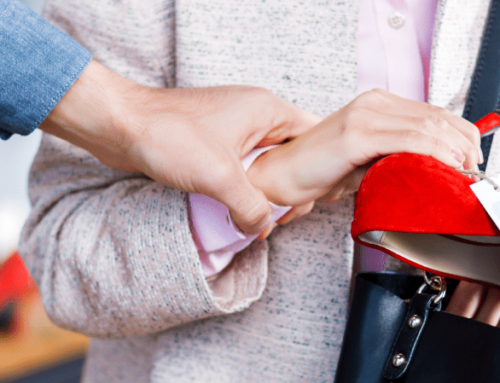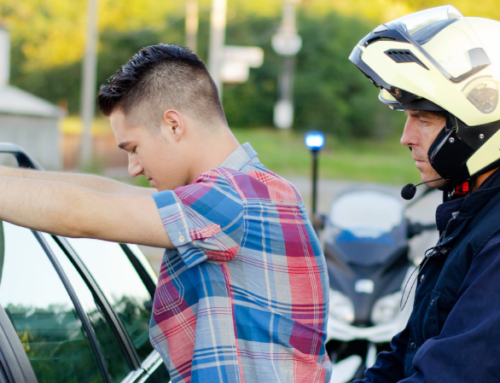As the Holidays approach we focus upon our family, friends, and giving. The last thing on our mind is what do to help a loved one or friend arrested and in jail. This, however, is a reality for many. How do you go about helping your friend after arrest? Fortunately, we have already anticipated this for you. Imagine your friend has been arrested and you want to help, but you don’t know how. What should you do? Who should you call? What should you say (or not say)? In the urgency of the moment, it’s difficult not to panic. The following list outlines steps you can take to assist and comfort your friend or loved one in the immediate aftermath of an unfortunate encounter with the police.
1. If you are present at the time of the arrest, be respectful. Always be respectful to the police. They are public employees and it’s not illegal to ask them questions provided you are not impeding their ability to do their jobs. Most officers are willing to provide basic information when questioned politely.
2. The next step toward helping your friend after arrest is to confirm whether they are actually under arrest. Ask the officers if they are free to go. If your friend is not free to leave, ask if they have been arrested or are simply being detained. If they have been arrested, ask why. If the arrest was made pursuant to a warrant, inquire as to what county or jurisdiction issued the warrant and what the bond amount is. Ask the officers where your friend will be booked and where you can bond him out. If the charge is a misdemeanor, the arresting officer may be able to tell you exactly how much the bond will be and where it can be posted. In some cases, your friend may qualify for a personal recognizance bond, meaning they will be released from jail after they go through booking procedures without having to post any money for a bond.
3. Next, gather information. Try to obtain the name of the arresting agency and the name of the arresting officer or officers. Note the time, date, and location of the arrest. Write it all down, so you won’t forget. This information can be very useful in locating your loved one in the jail system and these facts may be relevant to future court motions challenging the validity of the arrest.
4. Continually reassure your loved one. This is a key point in helping them after arrest. If you are able to communicate with them before they are taken the to the jail, advise them not to answer any questions that go beyond routine booking questions, like their name and date of birth. Reassure them you will make attempts to make bond as soon as possible, and that you will help them obtain a qualified criminal defense attorney. Always be available. Make sure your phone is charged and turned on and that you have it with you. Once at the jail, your loved one should be allowed to make a phone call. If they are moved to a new facility, they again should be allowed to make a phone call.
5. When your friend calls from the jail, DO NOT ask for details about what happened. This is critical for helping your friend after arrest. Virtually all police stations record these phone calls. The prosecution surely will obtain a copy of the recording. Do not ask about the circumstances leading up to and surrounding the arrest. This is not the time for scolding or making excuses. Furthermore, get their location. Ask where they are being held. Get the name (and address, if possible) of the facility and write this information down.
6. Remain calm. Typically, your friend will be scared and desperate to get out of custody. Reassure them they are not alone and will not be abandoned. You will work to get them out of jail as quickly as possible and to find a lawyer. Helping your friend after arrest includes urging them to remain silent. Tell them not to discuss the case with anyone while in custody until they meet with a lawyer. Understand, though, that this will be very difficult for them to do, especially if they are interrogated while in custody. Help them by telling them exactly what to say: “I don’t want to answer questions. I want to talk to a lawyer.”
7. Don’t delay in contacting a criminal defense lawyer. With so much at stake, you need a criminal defense lawyer on your side as soon as possible. It’s extremely important you inform the attorney exactly where your loved one is being held. Depending on the situation, the defense attorney may rush down to the facility to demand to speak with their client. Police officers are required by law to inform detained suspects that their lawyer has arrived and wants to speak with them. This may be crucial in disrupting a custodial interrogation.
8. If you hear about the arrest from a third party, find your friend. You may be able to locate them using your local government’s website. Commercial inmate locators are a waste of money. Note that it will take some time for the computer system to be updated. You may call your local law enforcement’s non-emergency line to help in locating your friend or family member. Have as much information as possible, including their full name with correct spelling, AKAs, and date of birth. You can also look up the number for your county jail and call there directly. Ask to speak with the booking department. If your friend is being housed a local precinct, it is helpful if know where the arrest took place, when the arrest occurred, and your friend’s current address.
9. Deal with bond issues by determining the specific charge. Find out what the criminal charge is with as much specificity as possible. Your friend may have a written document called a charging instrument with the exact name of the alleged crime. If you speak with officers at the scene or the jail, they may also be willing to provide you with the exact criminal allegation. But think twice before contacting a bondsman. If your friend is being held to a high money bond, you may consider contacting a bail bondsman. These are individuals and businesses who act as sureties for the purposes of posting bond. However, there are real financial and physical risks associated with bail bond agencies. If at all possible, talk to a criminal defense attorney about your other options first, before you make the call to a bondsman for helping your friend after arrest.
10. When posting bond be aware that you may be required to pay an additional fee. Most county jails have a bond-out window located somewhere in the administrative section of the building. Also, think of bond as a gift to your friend or loved one. Do not plan on getting that money back. Bond may be forfeited for failure to appear at future court dates. It may also be assigned to your friend’s attorney, or it may be used to pay fines and court costs. If there is any bond left over after the resolution of the case, it will be refunded to the person who posted the bond, less an administrative fee. Finally, don’t forget to arrange a ride for your friend upon their release on bond. Many police stations and county jails are not located in the safest neighborhoods and your friend may be released in the middle of the night.
11. Lastly, if your friend is unable to post bond, they may need your help in making necessary arrangements. For example, you will want to provide the jail (or your defense attorney) with all of your friend’s medications in the original prescription bottle. While helping your friend after arrest, you may want to contact their school, work, or community organizations to inform them of future absences. Make certain that things like rent or utilities do not go unpaid while your friend or family member is incarcerated.
Stephen Gustitis is a criminal defense lawyer in Bryan-College Station. He is Board Certified in Criminal Law by the Texas Board of Legal Specialization. He is also a husband, father, and retired amateur bicycle racer.
Related Posts:
Areas of Practice – Domestic Violence and Assault
How to Obtain Funds for Experts
How to Find the Best Case for Your Client
19 Things Clients Should Know About the Justice System
Seven Ways a Criminal Attorney Can Help You
Your Student Conduct Code Can Get You Arrested!
Three Reasons to Take Your Case to Trial
Should You Request a Speedy Trial?
What Are Your Speedy Trial Rights?








